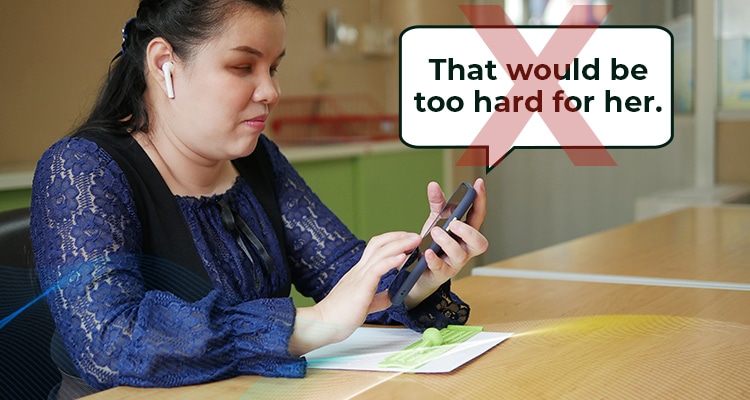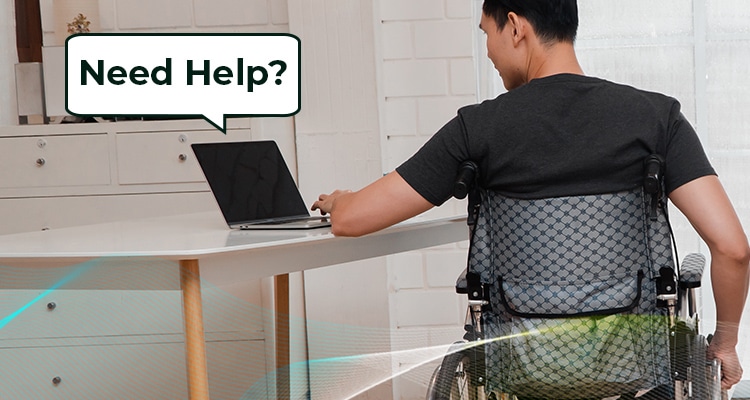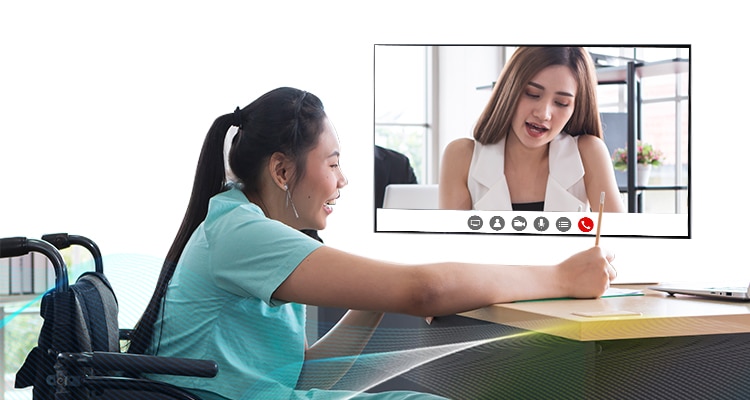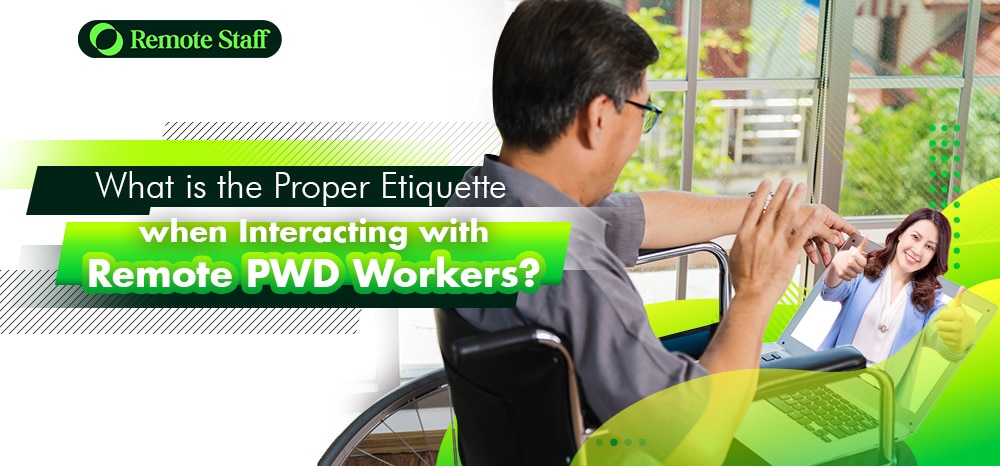The growing popularity of remote working today isn’t just a boon for regular workers. It has also given more work opportunities to PWDs as well. The increase in work from home jobs for persons with disabilities (PWDs) has helped level the playing field between remote PWD workers and regular workers. But this leveling of the playing field also brings its own challenges.
And one of these is how people within the company should interact with online PWD workers. To help alleviate this challenge, here are some dos and don’ts when interacting with remote PWD workers. Hiring online PWD workers may be the first step towards inclusivity. But it is knowing the proper etiquette when interacting with them that ensures it.

Avoid Asking Personal Questions to them.
Let’s begin this article with one of the simplest yet often overlooked rules of etiquette when interacting with online PWD workers. When initiating conversations with them, avoid asking personal questions like “what’s wrong with you?” or “how does it feel to have that kind of disability?” Asking this, particularly when you just met, comes off as rude and insensitive.
Of course, as I have said in my previous articles regarding remote PWD workers, every PWD is unique. Some may be comfortable answering personal questions. While others may take offense to them. The wisest thing to do is to inquire first if it’s alright to ask them these questions if you have to ask them. Otherwise, don’t ask them these questions out of the blue.

Don’t Treat Remote PWD Workers like Children.
Another thing that you should never do when interacting with remote PWD workers is to treat them as if they are children. Online PWD workers are already adults; otherwise, they wouldn’t be working in the first place. But this fact is still missed by some people. These people continue to baby-talk PWDs or do their tasks for them even though they could’ve done it themselves.
If you want to show your support to online PWD workers, treat them like adults instead of children. Don’t just decide what’s good for them without consulting them first or block them of opportunities that may be difficult for them. Also, during meetings, be sure to listen and consider their inputs like you would with regular workers.
Treating them like adults will make them feel welcomed and valued within the group, which increases their confidence in their ability to do their jobs. This newfound confidence will help them be more independent and take more initiative while working.

Ask First before Helping Remote PWD Workers.
Connected to my previously discussed etiquette rule is this one. Don’t get me wrong, helping your PWD co-workers is a good thing. It fosters cooperation and trust between you and your co-worker. But don’t just swoop in and assist them with giving a notification first. Doing this may give off the wrong impression to your PWD co-worker instead of them feeling grateful to you.
To avoid situations like this, be sure to ask your PWD co-worker first if they need your help when you want to help them. Maybe it’s just their first time doing an unfamiliar task; that’s why they’re only making slow progress. Or perhaps an external factor such as family issues or internet issues is to blame. You wouldn’t know unless you ask your PWD co-worker first.
Asking your PWD co-worker first before helping them shows that you see them as an equal, not as someone that needs babysitting. In addition, doing this isn’t also exclusive to your PWD co-workers. After all, you wouldn’t want someone to suddenly do your work out of nowhere, right?

Listen Well to what they have to Say.
I think we can all agree that nobody likes being ignored. It doesn’t feel good when you’re trying to contribute to the conversation and find nobody’s actually listening to what you’re saying. This is also true for your PWD co-workers. In fact, I would even go as far as to say that this is even more important for them.
Why is this even more important for them, you may ask? For remote PWD workers, their online jobs offer an opportunity to show that they’re capable of doing the work of ordinary workers. That despite their conditions, they are not helpless. And they can be just as good, or even better, than regular workers in their jobs.
Listening to their inputs and taking them into account during meetings is a great way to show that you value their thoughts and insights. PWD workers can offer unique insights that can be beneficial for the company. So don’t underestimate their inputs, as they could be the answer to a problem you’re having difficulty solving.

Be Patient with Remote PWD Workers.
Sometimes, when you’re interacting with your PWD co-workers, they may have difficulty expressing their thoughts or feelings with you. Or perhaps they’re having a hard time keeping up with everyone else’s work pace because of their conditions. When faced with these situations, remember to remain patient with them as they’re doing their best.
Yes, I know that remaining patient when interacting with your PWD employees or co-workers can be challenging at times. It is really like that in the beginning. But given enough time and trust, they will soon learn to adjust to working within a virtual workspace.

Never Mock them for their Disabilities.
And for our last etiquette rule to discuss, let us talk about jokes. Jokes can be a great way to start a conversation with anyone. But done poorly, and you will forever ruin your reputation with the person you’re talking to. I know that it’s common sense to some of you to never make fun of someone for their disabilities, but not all seem to get this, particularly if they’re just “joking.”
Relating this back to my first point, unless your PWD employee or co-worker explicitly states that they’re comfortable with it, NEVER joke about their disability. Sure, you’ll say that it’s just harmless fun, but jokes can really hurt your audience if you’re not careful. So before you crack a joke, always ask yourself first: “Will this joke make my audience laugh or make them hate me?”

It Never Hurts to be Polite.
And there you have it. Here are some of the etiquette rules that you need to follow when interacting with remote PWD workers. I know that for some of you, these rules seem to be common sense. But it is because of this that these rules are often overlooked. People tend to forget about these rules when in the virtual workspace. I hope that this article helps remind you of these rules or even educate you about them.

